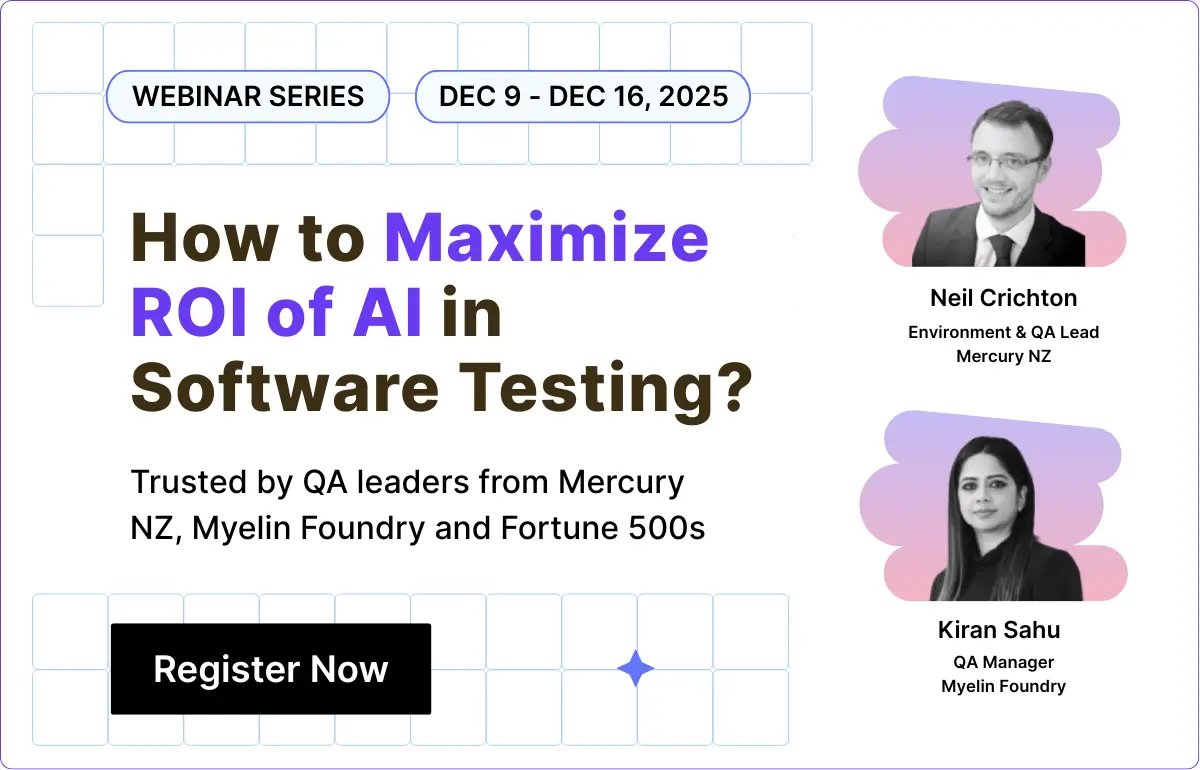A DevOps Engineer focuses on automating software deployment, managing infrastructure, and ensuring CI/CD pipelines for seamless operations. In contrast, a Full Stack Developer specializes in both front-end and back-end development, building complete web applications.
While DevOps enhances software delivery and reliability, Full Stack Development revolves around coding and feature implementation.
Overview
How to transition as a DevOps Engineer?
- Learn the Fundamentals
- Master CI/CD Pipelines
- Understand Cloud Platforms
- Get Comfortable with Containers & Orchestration
- Gain Expertise in Infrastructure as Code (IaC)
- Develop Monitoring & Logging Skills
- Understand Security Best Practices
- Work on Automation & Scripting
- Get Hands-On Experience
- Earn Certifications
How to transition as a Full-Stack Engineer?
- Master Front-End Development
- Gain Back-End Expertise
- Understand Databases
- Learn API Development
- Get Comfortable with Version Control
- Explore DevOps & Deployment
- Work on Authentication & Security
- Improve Problem-Solving & Algorithms
- Build Full-Stack Projects
- Earn Certifications & Keep Learning
Understanding their differences helps teams streamline development and deployment effectively.
Who are Full Stack Developers?
They are responsible for developing as well as designing web apps. They work with both back-end and front-end web technologies.
- Full Stack Developers should have a strong know-how of front-end technologies like JavaScript, HTML/HTML5, and CSS.
- They should also be skilled with server-side languages such as Ruby on Rails, Node.js, and PHP.
- Full Stack Developers often need to know database technologies such as Cassandra, MongoDB, and MySQL.
- In a few cases, they might also be responsible for managing web servers & hosting environments.
Key Responsibilities of Full-Stack Developers/Coders
The main purpose of the Full-Stack Coders is to observe and keep track of every facet of software development within an organization. They are involved in each layer of development programming, like the data layer, logic layer, and presentation layer.
- Developing & Designing APIs
- Forming front-end web architecture
- Developing UI on the website page
- Meeting both consumer & technical requirements
- Confirming cross-platform mobile phones optimization
- Staying updated on developments in web applications and programming languages
Who are DevOps Engineers?
DevOps generally means development plus operations. it is an enterprise software development phrase mainly used for stating a type of agile relationship between software development and IT operations.
The key purpose of DevOps is to enhance and change the association by advocating advanced communication and collaboration between the two business units.
- DevOps Engineers are mainly IT specialists with expertise in coding, scripting, and managing the complete operation of product development & deployment.
- Such developers renovate the old ways of software development, testing, and operations teams into a holistic environment for top-quality product development.
- These developers combine their in-depth knowledge as well as hands-on experience in software development with core business analytics expertise and know-how to propose innovative business solutions.
Key Responsibilities of DevOps Engineers:
- Performance management
- Project planning & development
- Project deployment
- Code Testing & deployment
- Maintenance & Troubleshooting
- Script language programming & Source-code Management
The role of DevOps Engineers is extremely demanding and versatile. These developers need to work upon an extensive range of jobs to meet their core responsibilities, counting coding, scripting, and re-engineering.
However, successful DevOps execution depends heavily on automation. It is extreme significance to use the appropriate test automation frameworks, established in the correct toolchains that will automate huge sections of the development & deployment pipeline.
- BrowserStack gives the industry-leading infra for testing on real devices, browsers, and OSs.
- Given the supremacy of DevOps to modern software development, the cloud grid is designed to align with DevOps-driven workflows.
- Integrations with famous CI/CD tools – TeamCity, Jenkins, GitLab, Travis CI, Bamboo, Circle CI, and Azure Pipelines make it a breeze for DevOps teams.
How to transition as a DevOps Engineer?
Transitioning to a DevOps Engineer role requires a mix of development, operations, automation, and cloud expertise. Follow these key steps:
Here is a brief description of each step:
- Learn the Fundamentals: Gain a strong understanding of Linux, scripting (Bash, Python), networking, and system administration.
- Master CI/CD Pipelines: Work with tools like Jenkins, GitHub Actions, GitLab CI/CD, and ArgoCD to automate software delivery.
- Understand Cloud Platforms: Gain hands-on experience with AWS, Azure, or Google Cloud for deploying and managing infrastructure.
- Get Comfortable with Containers & Orchestration: Learn Docker for containerization and Kubernetes for managing deployments.
- Gain Expertise in Infrastructure as Code (IaC): Work with Terraform, Ansible, or CloudFormation to automate infrastructure provisioning.
- Develop Monitoring & Logging Skills: Use tools like Prometheus, Grafana, ELK Stack, and Datadog for system observability.
- Understand Security Best Practices: Learn DevSecOps principles, security scanning, and vulnerability management.
- Work on Automation & Scripting: Improve automation skills using Python, Shell Scripting, and PowerShell to optimize workflows.
- Get Hands-On Experience: Set up your own CI/CD pipelines, Kubernetes clusters, and cloud environments through personal projects or labs.
- Earn Certifications: Consider AWS Certified DevOps Engineer, CKA (Certified Kubernetes Administrator), or Docker Certified Associate to validate your expertise.
Read More: Top DevOps Tools
How to transition as a Full-Stack Engineer?
Becoming a Full-Stack Engineer requires mastering both front-end and back-end development, along with database management and deployment skills. Follow these steps to transition smoothly:
Here is a brief description of each step:
- Master Front-End Development: Learn HTML, CSS, and JavaScript along with frameworks like React, Angular, or Vue.js to build interactive UI.
- Gain Back-End Expertise: Work with languages like Node.js, Python, Java, Ruby, or PHP and frameworks such as Express, Django, Spring Boot, or Rails for server-side logic.
- Understand Databases: Learn SQL (MySQL, PostgreSQL) and NoSQL (MongoDB, Firebase) databases for efficient data storage and retrieval.
- Learn API Development: Build RESTful and GraphQL APIs to enable communication between the front end and back end.
- Get Comfortable with Version Control: Use Git, GitHub, or GitLab for collaboration and maintaining code history.
- Explore DevOps & Deployment: Understand Docker, Kubernetes, and CI/CD pipelines to automate deployment and infrastructure management.
- Work on Authentication & Security: Learn OAuth, JWT, and security best practices to protect applications from vulnerabilities.
- Improve Problem-Solving & Algorithms: Strengthen DSA (Data Structures & Algorithms) skills to write optimized and scalable code.
- Build Full-Stack Projects: Work on real-world applications integrating front-end, back-end, and databases to gain practical experience.
- Earn Certifications & Keep Learning: Consider certifications in web development to boost credibility and stay updated.
Follow-Up Read: How do Agile and DevOps interrelate?
DevOps vs Full stack Developer: Differences
Here are some of the key differences between the roles and responsibilities of a Full stack developer vs a DevOps Engineer.
| Parameter | Full stack developer | DevOps Engineer |
|---|---|---|
| Job Duties | Full-stack developers chiefly handle the formation, management, and security of an app or software program | In contrast, DevOps engineers focus on automating procedures & ensuring that IT operations run flawlessly. |
| Job Requirements | Full-stack developers need to have expertise working with varied programming languages and know-how in developing software for several platforms. | DevOps experts must be familiar with varied tools that can aid them to automate tasks, like code testing & deployments. |
| Work Environment | Full-stack developers can work in any workplace setting, however, they might also travel to clientele sites. They spend most of their time working on projects & collaborating with other teams. | DevOps experts often work in a collaborative surrounding where they can collaborate with software engineers and IT teams. Their work environ are generally fast-paced & requires them to adapt rapidly to new challenges. |
| Skills | Full-stack developers tend to concentrate extremely on front-end development, which means they spend extra time working on the UI as well as ensuring that it is simple to use. | DevOps engineer, on the flip side, concentrates more on back-end development as well as infrastructure, which means, they are responsible for developing plus managing the networks, servers, and databases that power apps. |
| Drawbacks | When the newest technologies come into the marketplace it becomes tricky for a full-stack developer to learn them and execute that in their work. | They must be ready to face problems of various forms. Mainly they work in solitude so often they feel alone and this proves to be a key problem for anyone. |
DevOps and Full Stack Development: Which one should you Choose?
Both DevOps engineering and full-stack development are significant within the software development arena.
- DevOps engineers are in charge of developing and managing the infrastructure that lets software apps run efficiently and smoothly.
- Full-stack developers are responsible for designing, coding, testing, as well as delivering software apps.
- Both roles require a strong know-how of web development technologies and tools and programming languages.
The selection between full-stack development and DevOps engineering is truly a matter of personal choice.
- If you are interested in specializing in a specific zone, then DevOps engineering may be the appropriate choice for you.
- If you desire to work on a set of projects and have a more general know-how of software development, then full-stack development may be a great fit.
Eventually, the decision comes down to what you are most interested in & what you feel will assist you move your career. Let us compare some of the advantages of a DevOps vs a full-stack developer to assist you to decide which one you can select as your potential career.
Pros of a Full stack Developer
- They can easily switch between front-end and back-end work determined by your project’s parameters.
- You won’t be constrained by a solo framework trait in full-stack development.
- Whilst working on full-stack development, a developer can assist you with an extensive range of tasks. It comprises web coding, design structure, and other aspects.
- A developer can manage and handle the complete design—besides, the creation of your project.
- They are highly skilled at adapting to new changes and ideas and, as a result, are in great demand.
Pros of a DevOps Engineer
DevOps Engineers practice agile & lean approaches to modify IT culture. They also deliver IT solutions/ services on time. Besides, it also makes it easier for operations and developers teams to collaborate. Some of the advantages to get DevOps development training to comprise:
- They build quality services by utilizing DevOps processes.
- DevOps Engineer assists in controlling unnecessary capital expenditures. They also enable speedy duplication and delivery.
- DevOps Engineers mitigate errors/ bugs & difficulties regularly.
- They increase information security and safety as they are specialized in specific tasks.
Must-Read: Why DevOps Teams Need Cloud-Based Solutions
Conclusion
Both offshore DevOps Engineers and full-stack programmers have their flaws and qualities. However, the future looks very bright for the DevOps and Full-stack Developer industry and an increasing number of companies maintain that it has had a positive effect on their enterprise to date.
In some cases, Full-Stack Coders might assist you in driving the progress while in other cases, DevOps Engineers will push the software project a little frontward.
So, there is no fixed path when you decide to hire DevOps Engineers or Full-Stack Developers for your next software development project, the choice is yours, based on your expected agility, requirements, budget, time availability, and software stack complexity.








